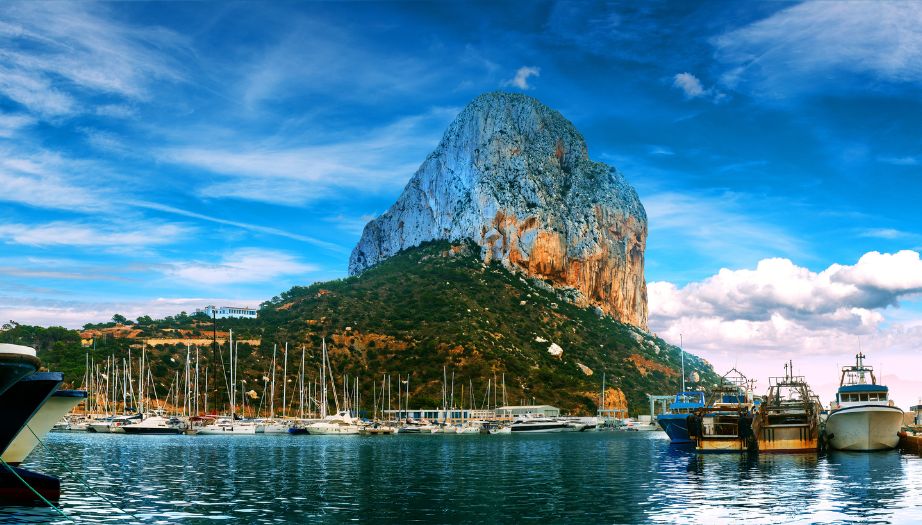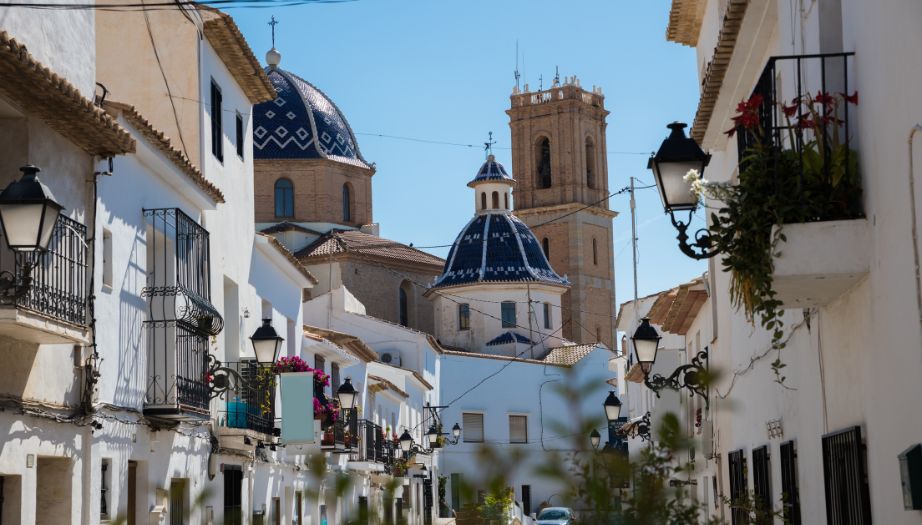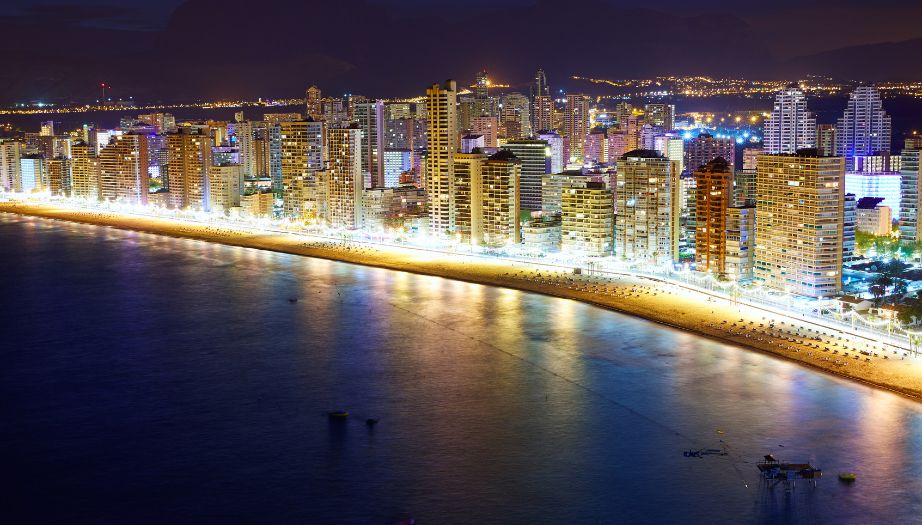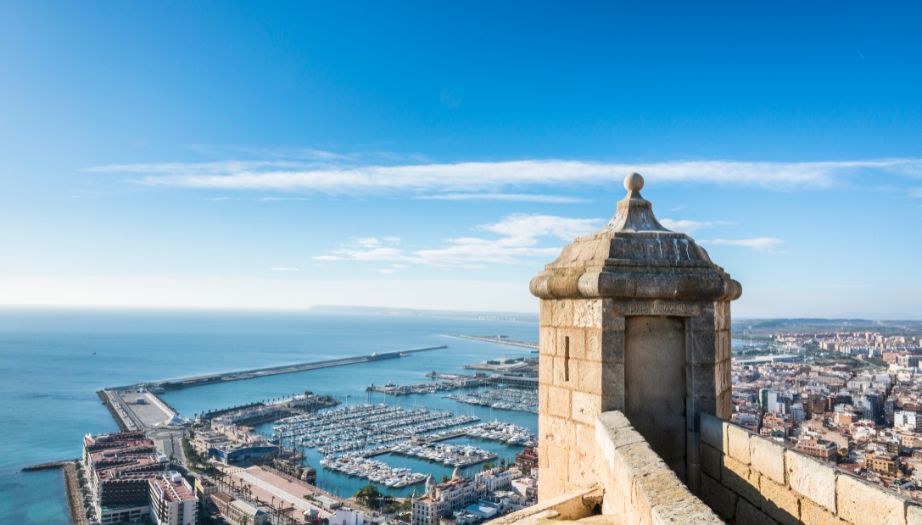Hit The Road With Confidence: Costa Blanca Car Hire
Welcome to the La Zenia Car hire in Costa Blanca, where we’ll take you on a journey through the stunning Spanish coastline in style and comfort. From the picturesque beaches to the historic towns and villages, there’s no better way to explore this beautiful region than with your very own rental car.
But with so many options available, how do you choose the best car hire service for your needs? That’s where we come in. Our article is packed with insider tips and expert advice to help you navigate the world of Costa Blanca car hire with ease.
Whether you’re a seasoned traveler or a first-time visitor, we’ve got everything you need to know to make the most of your rental car and discover all that this breathtaking region has to offer. So buckle up and get ready for the ride of a lifetime – we’re about to take you on a journey you’ll never forget.

Car Hire Requirements in Costa Blanca
Understanding the requirements for renting a car in Costa Blanca is an essential step to ensure a smooth and hassle-free experience. As a seasoned traveler, I have rented cars in Costa Blanca on several occasions, and I know firsthand how important it is to understand the rules and regulations of car rental in this region.
Here are some key factors to consider when it comes to renting a car in Costa Blanca:
-
Minimum age requirements: The minimum age for renting a car in Costa Blanca is typically 21 years old, although some rental companies may require drivers to be 25 years old or older. Drivers under the age of 25 may be subject to additional fees or restrictions, such as a minimum amount of driving experience or a maximum car size.
-
Driver’s license requirements: To rent a car in Costa Blanca, you will need a valid driver’s license from your home country. In some cases, an International Driving Permit (IDP) may also be required. It’s important to check with the car rental company before booking to ensure you have the necessary documentation.
-
Credit card requirements: Most car rental companies in Costa Blanca require a credit card in the name of the primary driver for security purposes (But not our company – La Zenia Car rental). Debit cards are generally not accepted, and cash payments may also be unavailable. It’s important to have a credit card with sufficient funds to cover the rental deposit and any additional charges.
| Requirement | Details |
|---|---|
| Minimum age | Typically 21, some companies may require 25 or older |
| Driver’s license | Valid license from home country, IDP may be required |
| Credit card | Credit card in the name of primary driver required, debit cards not accepted |
In my experience, it’s always a good idea to double-check the requirements with the rental company before booking. I once made the mistake of assuming that my debit card would be accepted, only to find out that it wasn’t and I had to scramble to find a credit card at the last minute.
Make sure to do your research, read the fine print, and enjoy the freedom and flexibility that comes with exploring Costa Blanca by car.
Comparing Car Hire Companies
Researching and comparing car rental companies in Costa Blanca is an important step to finding the best deals and services for your needs. As someone who has rented cars in Costa Blanca many times, I have learned the importance of doing my research beforehand to save time and money. In this article, I will share my tips and tricks for finding the best car rental companies in Costa Blanca and ensuring that you get the most out of your rental experience.
-
Start your research early: It’s essential to start your research well in advance to ensure that you have plenty of time to compare prices and services. This way, you can avoid last-minute price hikes and unavailability of cars during peak seasons.
-
Compare prices and services: Once you’ve narrowed down a few car rental companies, compare their prices and services. Look for special discounts, promotions, or bundle deals that can save you money. Pay attention to the add-on services such as GPS, baby seats, and insurance, and check if these are included in the rental price.
-
Check reviews: Check out online reviews of car rental companies on platforms like Google and TripAdvisor. Reading customer reviews can give you an idea of the company’s level of service and reliability.
In my experience, it’s best to compare at least three to five car rental companies to get a better idea of the market average. One time, I made the mistake of booking the first car rental I found online without checking the reviews, and it turned out to be a poor experience with poor customer service.
By researching and comparing car rental companies in Costa Blanca, you can ensure that you get the best deal and services for your needs. Don’t rush the process and be thorough in your research, and you will have a more enjoyable and stress-free rental experience.

Types of Insurance Coverage
When hiring a car in Costa Blanca, understanding the types of insurance coverage available is crucial for protecting yourself and your rental car.
As someone who has rented cars in Costa Blanca numerous times, I’ve learned the importance of choosing the right insurance coverage. I will explain the different types of insurance coverage available and help you choose the best option for your needs.
Third-party liability insurance: This is the basic insurance that is included in most car rental agreements. It covers damages to third-party vehicles or property but does not cover damages to the rental car itself.
Collision Damage Waiver (CDW): CDW is an additional insurance that covers damages to the rental car in the event of an accident or collision. It typically has a deductible or excess amount that you will need to pay in case of any damages.
Theft protection insurance: This insurance covers theft or damage to the rental car caused by theft. It’s essential when renting a car in Costa Blanca because car theft is not uncommon in the area.
Personal Accident Insurance (PAI): PAI covers medical expenses and provides personal accident coverage for the driver and passengers in case of an accident.
| Insurance Type | Coverage | Deductible/Excess |
|---|---|---|
| Third-Party Liability Insurance | Third-party vehicle or property damage | N/A |
| Collision Damage Waiver (CDW) | Rental car damage | Varies |
| Theft Protection Insurance | Theft or damage caused by theft | Varies |
| Personal Accident Insurance (PAI) | Medical expenses and personal accident coverage | N/A |
It’s essential to note that insurance coverage and deductibles/excess amounts may vary depending on the rental car company and the type of car you rent. It’s crucial to read the terms and conditions carefully before signing the rental agreement.
When choosing insurance coverage for your rental car, consider your driving experience, the area you’ll be driving in, and your budget. If you’re an inexperienced driver or driving in a high-risk area, it’s best to opt for full coverage insurance. However, if you’re an experienced driver and driving in a low-risk area, you may only need basic coverage.
Be sure to read the terms and conditions carefully, and don’t hesitate to ask questions about the coverage offered.
Local Driving in Costa Blanca: Rules & Regulations
When driving in Costa Blanca, it’s important to know the local driving laws and regulations to avoid any fines or legal trouble. As someone who has driven in Costa Blanca numerous times, I can’t underestimate the importance of knowing the rules.
- Speed limits: The speed limits in Costa Blanca are as follows:
- Urban areas: 50 km/h (31 mph)
- Secondary roads: 90 km/h (56 mph)
- Motorways: 120 km/h (75 mph)
It’s crucial to obey the speed limits as traffic cameras and police are present in the area, and speeding fines can be high.
- Parking restrictions (applies mostly to the bigger cities): Parking restrictions in Costa Blanca are indicated by different signs and markings on the road. The following are some of the most common parking regulations:
- Blue zones: These are paid parking areas, and a parking disc must be displayed.
- Yellow zones: These are no-parking areas, and parking is prohibited.
- White zones: These are free parking areas, but time restrictions may apply.
- Seatbelt requirements: Seatbelt use is mandatory for drivers and passengers in the front and back seats. Children under 135 cm (4.4 feet) tall must use an appropriate child restraint system.
| Driving Regulation | Requirements |
|---|---|
| Speed Limits | Urban areas: 50 km/h, Secondary roads: 90 km/h, Motorways: 120 km/h |
| Parking Restrictions | Blue zones: Paid parking with a displayed parking disc, Yellow zones: No-parking areas, White zones: Free parking with time restrictions |
| Seatbelt Requirements | Mandatory for drivers and passengers, Children under 135 cm (4.4 feet) tall must use an appropriate child restraint system. |
In conclusion, knowing the local driving laws and regulations in Costa Blanca is essential for safe and legal driving. Always obey the speed limits, park in designated areas, and ensure all passengers wear their seatbelts.

Types of Roads in Costa Blanca
The key types of roads in Costa Blanca, including highways, rural roads, and mountainous terrain.
-
Highways: Costa Blanca has well-maintained highways that connect major cities and towns (AP-7). These highways are designed for high-speed travel and generally have multiple lanes. However, it’s important to note that the highways can get busy during peak hours, so it’s best to plan accordingly.
-
Rural roads: Rural roads are common in Costa Blanca and can be narrow and winding. These roads often lead to small towns and villages, and while they offer stunning scenery, they can be challenging to navigate, especially for inexperienced drivers. It’s important to be extra cautious when driving on rural roads and to watch out for oncoming traffic.
-
Mountainous terrain: Costa Blanca is home to beautiful mountainous regions, and driving in these areas can be a unique experience. However, it’s important to note that the roads can be steep, winding, and narrow. It’s best to drive carefully and take extra precautions when driving in mountainous terrain, especially during bad weather conditions.
| Road Type | Characteristics |
|---|---|
| Highways | Well-maintained, designed for high-speed travel, can get busy during peak hours. |
| Rural Roads | Often narrow and winding, lead to small towns and villages, require extra caution. |
| Mountainous Terrain | Steep, winding, and narrow roads, beautiful scenery, require extra precautions. |
Always drive carefully, especially on rural roads and mountainous terrain, and plan your route accordingly. By understanding the characteristics of each road type, you can make informed decisions and ensure a smooth driving experience in Costa Blanca.
Local Road Signs and Symbols in Costa Blanca
Being able to read and interpret road signs accurately can help you navigate the roads safely and efficiently.
-
Speed Limit Signs: Speed limit signs are usually indicated in kilometers per hour (km/h) and are found throughout the area. The speed limits can vary depending on the type of road you’re on, so it’s important to pay attention to these signs.
-
Stop Signs: Stop signs are red octagonal signs that require you to come to a complete stop before proceeding. These signs are found at intersections and are often accompanied by yield signs or arrows indicating the direction of traffic.
-
No Parking Signs: No parking signs are common in Costa Blanca and indicate areas where parking is not allowed. These signs are usually red and white and may have additional information, such as the times or days when parking is prohibited.
-
One-Way Signs: One-way signs indicate that traffic flows in only one direction on a particular road. These signs are usually rectangular and can be found at the beginning of a one-way street.
-
Roundabout Signs: Roundabouts are common in Costa Blanca, and it’s important to know how to navigate them correctly. Roundabout signs are usually circular and indicate the direction of traffic flow around the roundabout.
Personal Example: During my first trip to Costa Blanca, I was unfamiliar with the local road signs and symbols. I remember missing a turn because I didn’t understand the roundabout sign and ended up taking a longer route to my destination.
By familiarizing yourself with these signs, you can navigate the roads with confidence and avoid potential accidents. Always pay attention to the road signs and symbols and follow them accordingly.
Navigating Roundabouts in Costa Blanca
If you’re planning to drive in Costa Blanca, it’s important to know how to navigate roundabouts. These circular intersections are common in the area and are used instead of traditional intersections. I will cover some tips and guidelines to help you navigate roundabouts safely and efficiently.
Yield to Traffic Already in the Roundabout: When approaching a roundabout, you should always yield to traffic that is already in the roundabout. Look to your left and wait for a gap in traffic before entering the roundabout.
Stay in Your Lane: Once you have entered the roundabout, stay in your lane and do not change lanes unless necessary. The lane markings in the roundabout will guide you to your exit.
Use Turn Signals: Use your turn signals to indicate which exit you will be taking. Signal your intention to exit the roundabout as you approach your exit.
Give Way to Pedestrians: Pedestrians have the right of way at roundabouts, so be sure to yield to them if they are crossing the road.
During my first trip to Costa Blanca, I found the roundabouts to be quite confusing. I wasn’t sure how to enter or exit the roundabout, and I didn’t know which lane to use. However, after observing the locals and reading up on the guidelines, I was able to navigate the roundabouts with ease. I learned to always yield to traffic in the roundabout, stay in my lane, and use my turn signals when exiting.
Remember to yield to traffic already in the roundabout, stay in your lane, use your turn signals, and give way to pedestrians. With practice, you’ll find that navigating roundabouts in Costa Blanca is not as difficult as it may seem.

Planning Your Routes & Destinations
With so much to see and do in the area, proper planning can help you maximize your experience and make the most of your rental car. I will cover some tips and guidelines to help you plan your routes and destinations in advance.
-
Research Your Destination: Before setting out on your trip, take some time to research the different destinations and attractions in the area. Look for places that interest you and make a list of the ones you want to visit.
-
Map Out Your Route: Once you have a list of your destinations, map out your route using a GPS or mapping app. Plan your route to maximize your time and minimize backtracking.
-
Plan for Rest Stops: Be sure to plan for rest stops along the way. This will give you a chance to stretch your legs, take a break from driving, and enjoy the scenery.
-
Check Traffic and Road Conditions: Check traffic and road conditions before setting out on your trip. This will help you avoid delays and ensure a smooth journey.
During my last trip to Costa Blanca, I rented a car and planned my routes and destinations in advance. I researched the different attractions in the area and made a list of the ones I wanted to visit. I mapped out my route using a GPS app and planned for rest stops along the way. I also checked traffic and road conditions before setting out on my trip.
As a result of my planning, I was able to visit all of the attractions on my list and make the most of my time in Costa Blanca. I was able to avoid traffic delays and enjoy a smooth journey thanks to my planning.
In conclusion, planning your routes and destinations in advance can help you make the most of your rental car in Costa Blanca. Research your destinations, map out your route, plan for rest stops, and check traffic and road conditions before setting out on your trip. With proper planning, you can enjoy a smooth and enjoyable journey through the beautiful Costa Blanca region.
Top Tourist Destinations in Costa Blanca
| Destination | Distance from Alicante | Driving time from Alicante | Distance from Valencia | Driving time from Valencia | Distance from La Zenia | Driving time from La Zenia |
|---|---|---|---|---|---|---|
| Benidorm | 42 km | 40 minutes | 134 km | 1 hour 25 minutes | 65 km | 50 minutes |
| Altea | 60 km | 50 minutes | 120 km | 1 hour 15 minutes | 80 km | 1 hour |
| Javea | 95 km | 1 hour 15 minutes | 107 km | 1 hour 10 minutes | 32 km | 35 minutes |
| Denia | 105 km | 1 hour 20 minutes | 106 km | 1 hour 10 minutes | 50 km | 45 minutes |
| Calpe | 76 km | 1 hour | 116 km | 1 hour 15 minutes | 36 km | 40 minutes |
| Villajoyosa | 32 km | 30 minutes | 151 km | 1 hour 30 minutes | 50 km | 45 minutes |
| Guadalest | 68 km | 1 hour 10 minutes | 99 km | 1 hour 5 minutes | 56 km | 1 hour 10 minutes |
| Moraira | 96 km | 1 hour 20 minutes | 93 km | 1 hour | 10 km | 15 minutes |
| Santa Pola | 17 km | 20 minutes | 127 km | 1 hour 15 minutes | 64 km | 55 minutes |
| Elche | 23 km | 25 minutes | 159 km | 1 hour 35 minutes | 47 km | 40 minutes |
NB: Driving times may vary based on traffic and road conditions.
Tolls, Road Closures & Parking Restrictions
When driving in Costa Blanca, it’s essential to prepare for potential challenges such as tolls, road closures, and parking restrictions to avoid any unnecessary stress during your trip. Here are some tips on how to prepare for these challenges:
-
Tolls: Some highways in Spain charge toll fees (AP-7 at certain points), and it’s essential to be aware of these costs before you hit the road. You can check toll prices online via Google Maps or through your GPS system. Keep in mind that some toll stations only accept cash, so make sure to have some Euros on hand.
-
Road closures: Road closures can be common in Costa Blanca, especially during the summer months when many festivals and events take place. Make sure to check for any scheduled road closures before your trip and plan alternate routes accordingly. You can check for road closures on the Spanish Traffic Authority website or through your GPS system.
-
Parking restrictions: Many cities and towns in Costa Blanca have strict parking regulations, and it’s essential to be aware of these rules to avoid fines or towing. Look for signs indicating parking restrictions, and if you’re unsure, ask a local or park in a designated parking lot.
During my recent trip to Costa Blanca, I encountered a toll road on my way to Valencia. Although I was aware of the toll, I wasn’t sure how much it would cost, so I had to do a quick online search to find out. I also experienced road closures in Alicante due to a festival, but I had planned an alternate route ahead of time, so it didn’t disrupt my plans.
In Case of an Accident or Breakdown
Hiring a rental car in Costa Blanca can be an amazing experience, but it’s important to know what to do in case of an accident or breakdown. Here are the steps you should take:
-
Stay calm and check for injuries: If anyone is injured, call the emergency services immediately.
-
Move to a safe location: If possible, move your car to a safe location to avoid further accidents. Turn on your hazard lights and use warning triangles if available.
-
Call the rental car company: Contact the rental car company immediately to report the incident and get further instructions. They may provide you with a replacement vehicle, or arrange for a tow truck.
-
Gather information: Collect information from the other driver(s) involved in the accident, including their name, contact information, driver’s license number, and insurance details. If there are witnesses, get their contact information as well.
-
Take photos: Take photos of the accident scene, the damage to the cars, and any injuries.
-
Contact the police: Depending on the severity of the accident, you may need to contact the police to file a report. This is especially important if someone is injured or if there is significant damage to the vehicles.
-
Fill out the accident report: If the police are not involved, you will need to fill out an accident report with the rental car company. Provide as much detail as possible, including the date, time, location, and a description of what happened.
-
Follow up: Follow up with the rental car company to ensure that everything is being handled properly. Keep all documents related to the accident, including the accident report, photos, and any correspondence with the rental car company.
In case of a breakdown, here are the steps you should take:
-
Pull over to a safe location: If possible, pull over to a safe location away from traffic. Turn on your hazard lights and use warning triangles if available.
-
Contact the rental car company: Call the rental car company immediately to report the breakdown and get further instructions. They may provide you with a replacement vehicle or arrange for a tow truck.
-
Follow the rental car company’s instructions: The rental car company may instruct you to take the car to a specific mechanic or garage. Follow their instructions to avoid any additional charges.
-
Keep records: Keep records of all communication with the rental car company and any receipts or invoices for repairs or services.
It’s important to be prepared for these potential challenges when driving in Costa Blanca, and to know what steps to take in case of an accident or breakdown. By following these guidelines, you can ensure a safe and stress-free driving experience in Costa Blanca.
